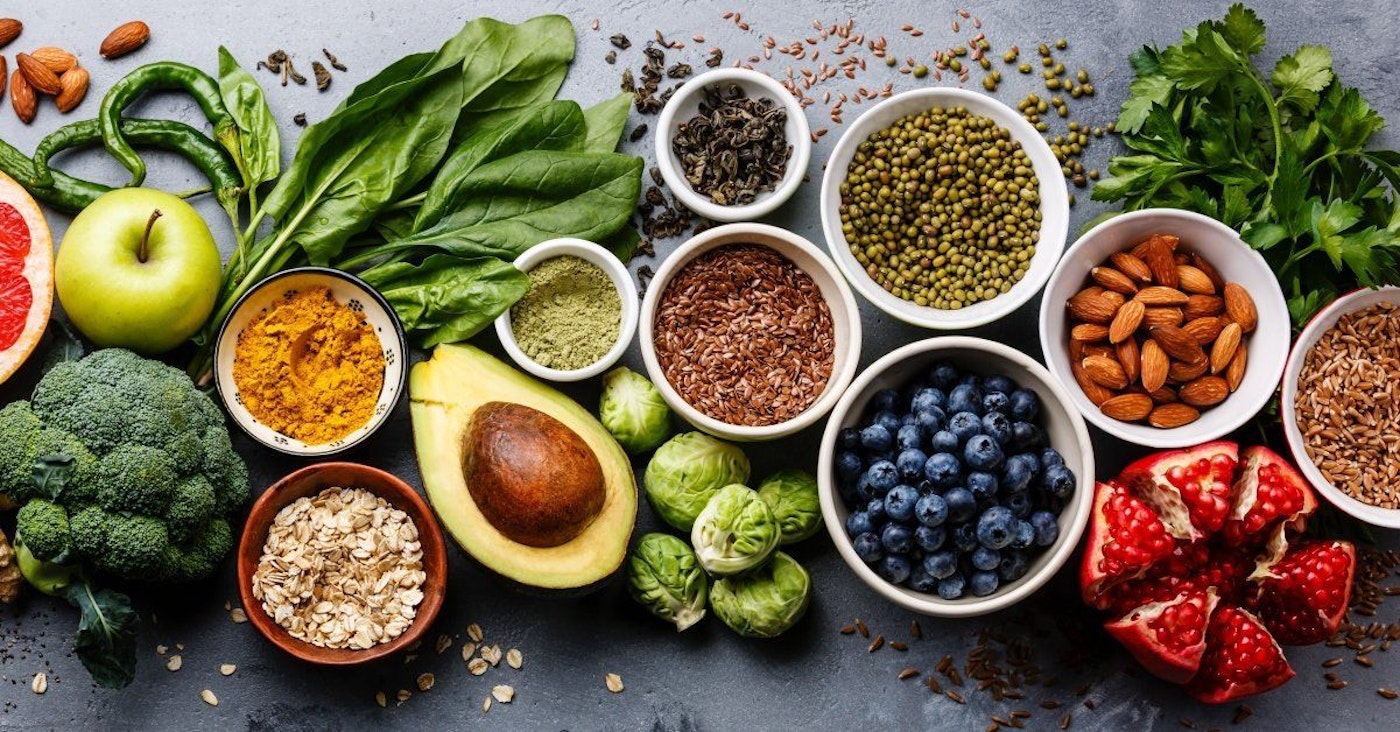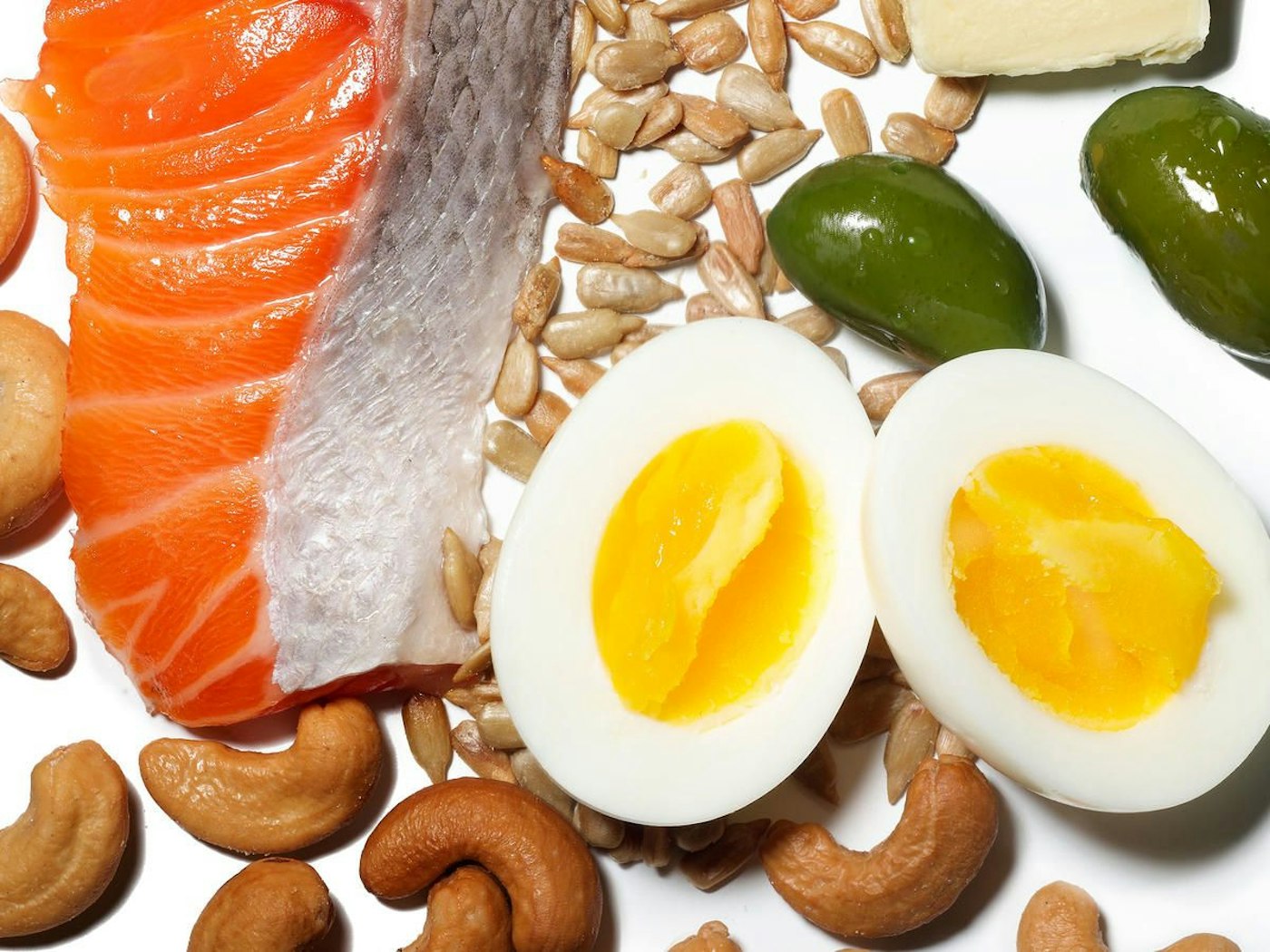6 Ways to Manage Perimenopause During Ramadan
by Yasmin Latif in Culture & Lifestyle on 24th March, 2023

Note: The nutritional information and advice mentioned here does not constitute a replacement for medical advice. It is not intended to diagnose, treat, prevent or cure any disease. If you are concerned about your symptoms, please consult a medical professional.
Perimenopause, a natural transition in every woman’s life is the time leading up to menopause. Menopause signals the end of our reproductive years. At this point, the two main sex hormones, oestrogen and progesterone begin to decline in our bodies which causes perimenopausal symptoms.
A woman is said to be in menopause when she has not had her menses for 12 months. Menopause usually occurs between the ages of 45 to 55 years. The average age for women in the UK is 51 years, but it can vary depending on genetics and ethnicity. Perimenopause can last up to 10 years before a woman enters menopause.
For a lot of women, perimenopausal symptoms can be turbulent. Although this list of symptoms is not exhaustive, and may be due to other conditions, they can include:
- Hot/cold flashes and night sweats
- Anxiety/depression/mood swings
- Poor sleep
- Tiredness
- Joint/muscle aches
- Urinary infections and urgency
- Low libido
- Weight gain
- Tinnitus
- Dry mouth and eyes
- Gum disease
- Bloating
- Reflux
- Palpitations
- Brain fog
- Lack of motivation
Managing perimenopause symptoms during Ramadan may be challenging, but it is possible to have a successful and calm Ramadan. Understanding your body’s nutritional and lifestyle needs during Ramadan is crucial and needs some planning and preparation.
Here are some tips to help you manage perimenopause:
1. Beneficial Foods to Eat During Ramadan
These nutritional points (below) can be applied to suhoor to set you up for the day of fasting. For iftar, these principals will ensure your body gets the nutrients it needs.
Carbohydrates
It is vital to eat a balanced meal that includes slow releasing energy foods, known as complex carbohydrates. These will keep your energy levels constant rather than you crashing after a full meal. They can also be helpful in controlling anxiety, stress and vasomotor symptoms like hot flashes and night sweats.

Examples include:
- Whole grains (oats, brown rice, quinoa)
- Legumes (chickpeas, red kidney beans, black beans)
- Nuts (walnuts, brazil nuts, cashew nuts)
- Vegetables (cauliflower, carrots, kale)
- Fruits (apples, strawberries, blueberries)
Protein
Protein is essential as it keeps you fuller for longer, due to its being broken down and digested at a slower pace than carbohydrates. This means your body will consume energy at a steadier rate. The body’s appetite grows for protein during perimenopause because as we get older we lose muscle mass (sarcopenia) and bone strength.
If we do not consume enough protein we may get cravings for other foods like refined carbohydrates such as white bread, white pasta and cakes. These are a form of sugar. Since hormonal changes during perimenopause can play havoc with blood sugar levels, consuming high sugar foods may increase the chance of some women developing Type II diabetes. Types of proteins to consume are:
- Meats (preferably free range/organic chicken, fish, lamb)
- Fish (wild salmon, cod, haddock)
- Eggs (pasture reared)
- Some dairy (unsweetened Greek yogurt, milk)
- Beans and lentils (chickpeas, edamame, red lentils)
- Nuts and seeds (walnuts, chia seeds, pumpkin seeds)
Healthy fats
Fats to avoid are trans-fats, hydrogenated oils and high levels of saturated fats, usually found in cheese, margarine, butter, cakes, processed and fatty red meats. These fats can contribute to weight gain, and women often find that they gain weight in perimenopause. Being overweight increases your chances of heart disease, and cardiovascular disease is the biggest killer of women once they reach menopause.

Healthy fats such as omega 3 fats may help reduce your chances of getting cardiovascular disease, stroke and depression. The risk of these diseases increases during menopause. Some studies have shown omega 3 oils (e.g. oily fish and flaxseeds) may also reduce your symptoms of night sweats. Other healthy fats like monounsaturated, polyunsaturated and unsaturated fats are also needed for building your immune system, brain health and making hormones for the body. These include:
- Oily fish (salmon, mackerel, sardines)
- Avocados
- Olive oil
- Nuts and seeds
- 1 square of dark chocolate (70% cocoa solids)
Eat the rainbow
Make sure you load up on fruits and vegetables with different colours everyday (see below). They contain fibre that can help you to keep satisfied and prevent constipation, as well as vitamins and minerals, which comprises antioxidants and phytonutrients. These have a whole array of benefits including reducing inflammation, which is common during perimenopause. Although our sex hormones are naturally anti-inflammatory, they start to fluctuate and decline during perimenopause/menopause. Increased inflammation exacerbates perimenopause symptoms such as aching/painful joints and muscles, brain fog and low mood.
- Red (tomatoes, strawberries, pomegranates)
- Yellow and orange (pineapple, butternut squash, carrots)
- Green (broccoli, green leafy vegetables like spinach, green herbs like coriander)
- Blue and purple (blueberries, red/purple cabbage, blackberries)
Some plants also contain phytoestrogens, these compounds help to rebalance oestrogen in women’s bodies. Their benefits include reducing perimenopausal symptoms like hot flashes, vaginal dryness and urinary infections. They can also help to prevent conditions caused by oestrogen deficiency like osteoporosis. Some examples are apples, peaches, kale and yams.
2. Hydration
After a long day of fasting, it can be tempting to have sugary and caffeinated drinks at iftar. However, symptoms such as hot flashes/night sweats, heart palpitations and anxiety can be exacerbated by caffeine and sugar. Alternatives to these are herbal teas e.g. sage, peppermint or fruit teas. Refreshing cool water with lemon and lime slices, ginger slices or fresh berries also work well. Fruits and vegetables with a high-water content (e.g. berries, citrus fruits, cucumber and tomatoes) are a great source of hydration. Milk is another great way to replenish your body after breaking your fast.
3. Manage Stress
You are more likely to experience stress with the perimenopause, and fasting can escalate stress. Oestrogen and progesterone both regulate our cortisol levels, which is responsible for regulating our stress response to different situations. When our hormones fluctuate our cortisol levels can be higher than usual resulting in disrupted sleep, weight gain and tiredness. Managing your stress levels during Ramadan is important, and some ways to achieve this include: going for walks, meditating, praying and journaling.
Studies show that breathing exercises calm the nervous system and induce physiological changes in your body like reducing blood pressure, lowering heart rate as well lowering stress. Try the 4-7-8 Breathing technique in the below steps:
- Breathe in through your nose for 4 seconds
- Hold your breath for 7 seconds
- Breathe out through your mouth (with a sigh) for 8 seconds
4. Practice Sleep Hygiene
Lack of sufficient sleep can intensify your perimenopause symptoms. Having a bedtime routine during Ramadan, and beyond, can make your symptoms manageable. Aim to switch off all electronics at least an hour before bed to help you ease into sleep as electronic gadgets cause mental stimulation, and the blue light they emit can reduce melatonin production (hormone which responds to darkness), thereby disrupting sleep patterns.
5. Keeping Active
Gentle walking before and after iftar is a gentle way to keep active. Studies show walking in nature reduces anxiety, depression, aids strength and adds mobility to your joints. It can also help manage your blood sugar levels after eating and help you to get a good night’s sleep.
For those of you who want to do a little more than walking, aim for a low intensity workout (cycling, light jogging) before iftar. A higher intensity workout (strength training) can be done an hour after iftar if that’s your preference.
Always listen to your body and do not start a new regime of exercise. Focus on your current fitness level and maintain that. Make sure you keep a bottle of water with you and look for signs of dehydration such as dizziness, fast heart rate, nausea, feeling faint, fatigue and dark urine.
6. Listen To Your Body
There is so much pressure at this time of year, with an incessant search for perfection. From having the perfect iftar with our families and friends, to cooking the perfect meal to doing the everyday chores. There is no need to put this pressure or expectation on yourself. Put yourself first, and feel free to say no to events and having extra guests around if you find that it’ll exacerbate your symptoms.
References
El Khoudary, S.R. et al. (2020) Cardiovascular disease in women | circulation research, Circulation.
Ma, X. et al. (2017) The effect of diaphragmatic breathing on attention, negative affect and stress in healthy adults, Frontiers in psychology. U.S. National Library of Medicine.
Mohammady, M. et al (2018) Effect of omega-3 supplements on vasomotor symptoms in menopausal women: A systematic review and meta-analysis, European journal of obstetrics, gynecology, and reproductive biology. U.S. National Library of Medicine.
Sudimac, S., Sale, V. and Kühn, S. (2022) How nature nurtures: Amygdala activity decreases as the result of a one-hour walk in nature, Nature News. Nature Publishing Group.
Yasmin Latif
Yasmin Latif is a registered Nutritional Therapist and Health Coach. She graduated with a distinction from the College of Naturopathic Medicine. She specialises in women’s hormonal health including perimenopausal/menopausal symptoms. Yasmin combines personalised nutrition, lifestyle approaches and health coaching to help women reach their health goals. She is passionate about empowering women to take control about what is happening in their bodies.